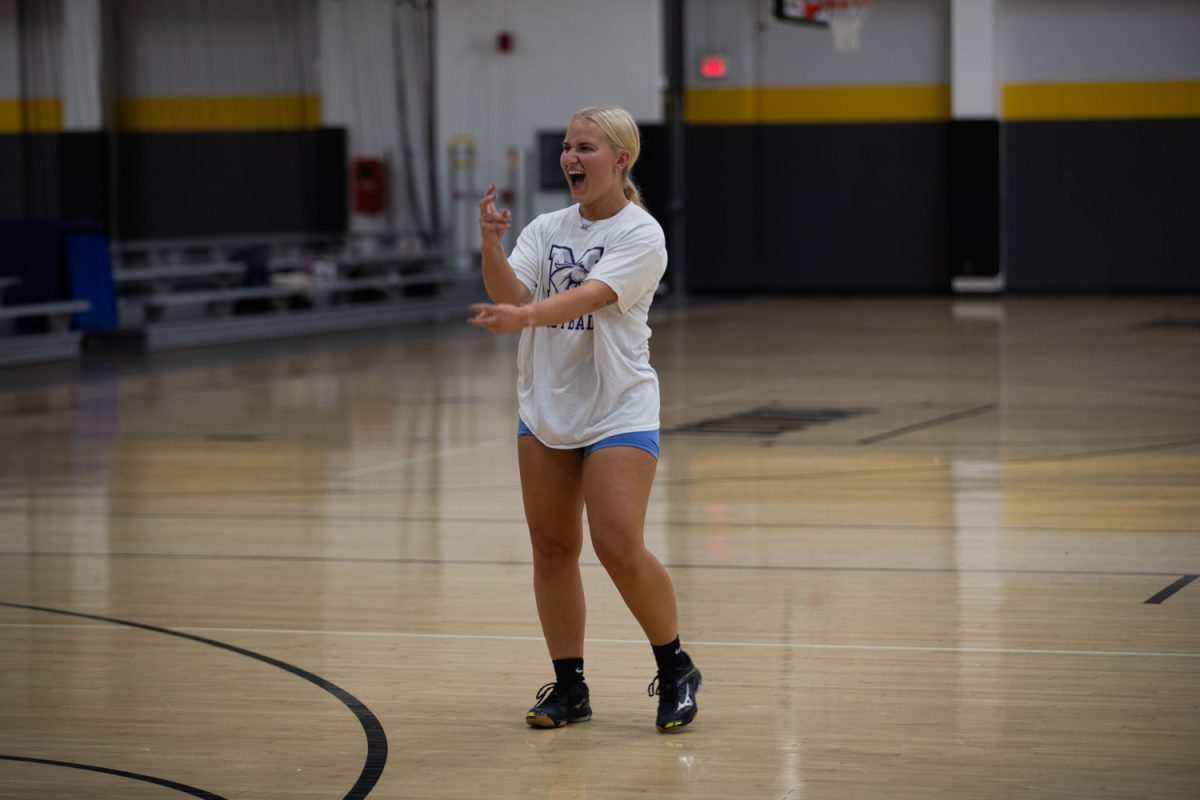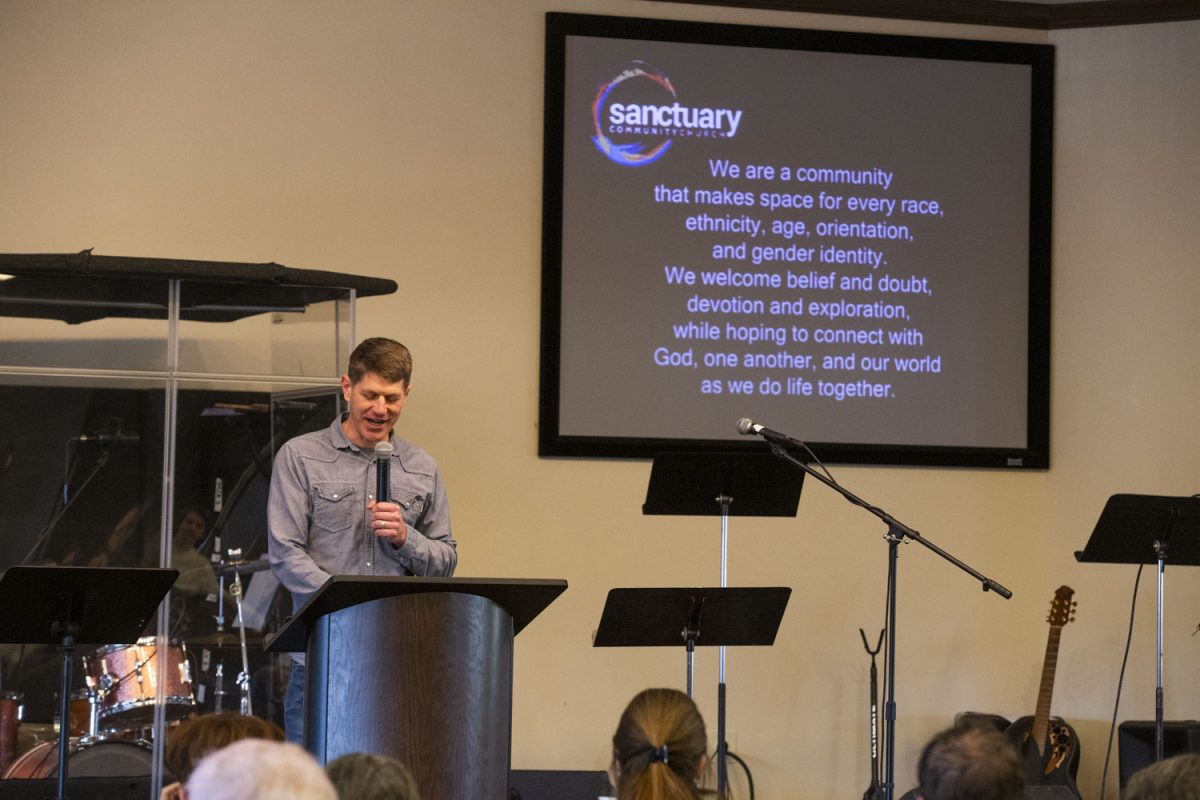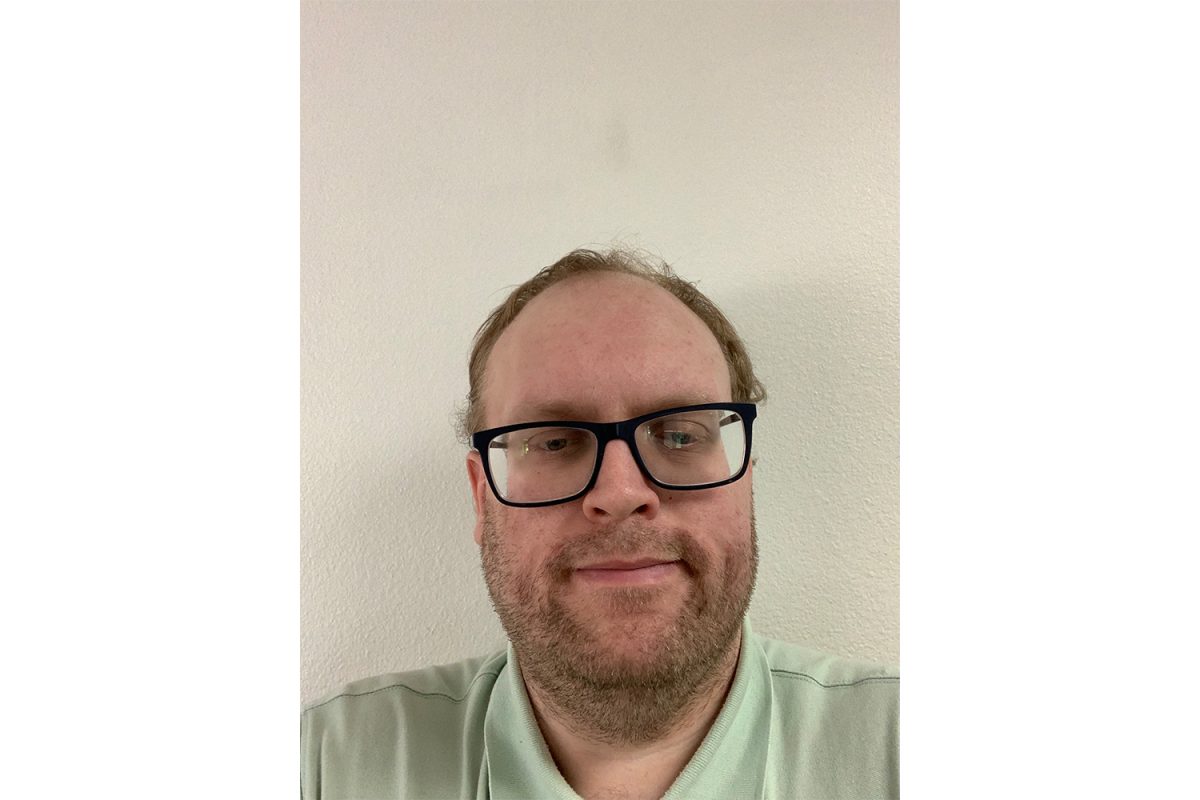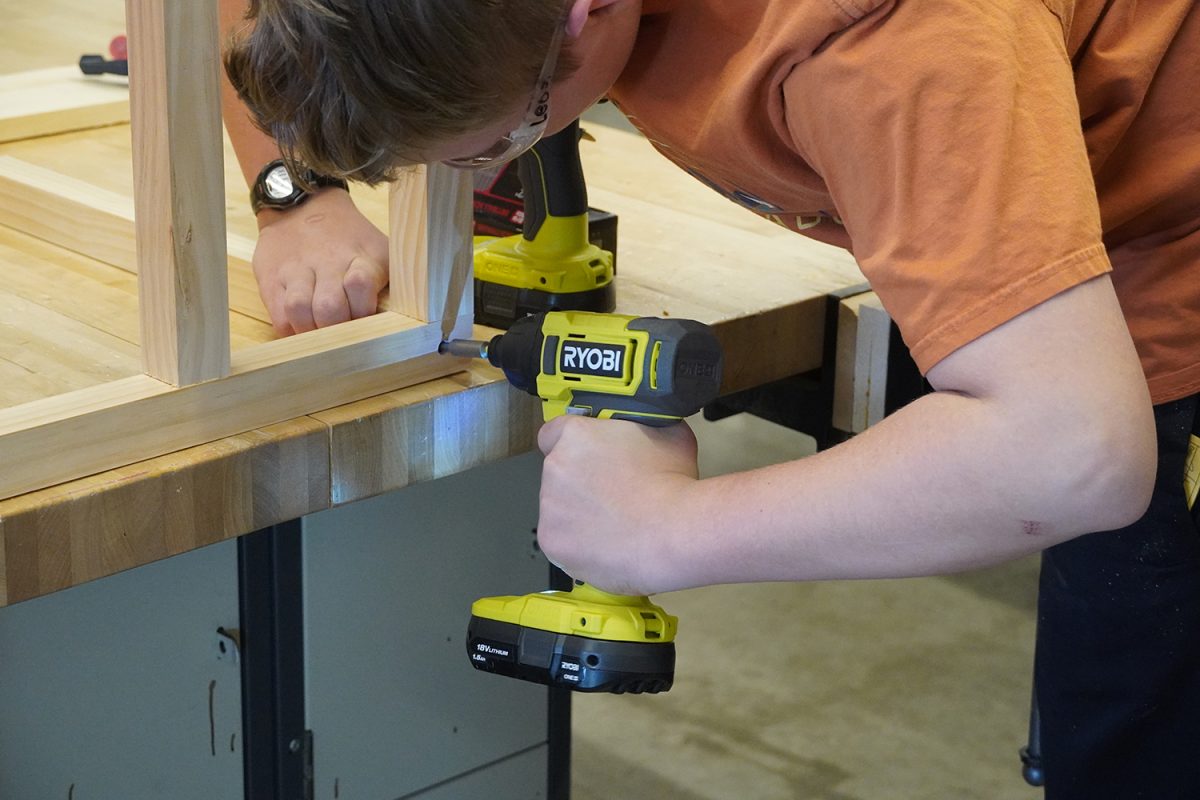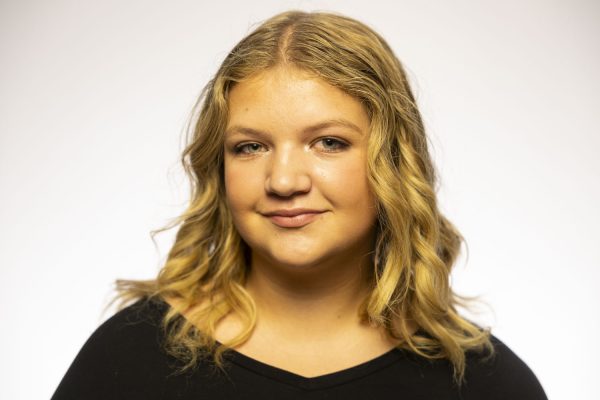Member of the Iowa City Deaf community Robert Vizzini scribbled down some notes an interpreter provided to him, but when it was finally his turn to speak at a Cedar Rapids school board meeting, the interpreter gave an inaccurate depiction of Vizzini’s speech with shaky, slow signs.
“[My message] wasn’t as professionally stated as I wanted. I was going up there fighting for deaf children’s rights and I was very passionate, but how it came out from the interpreter’s voice and perspective made me sound and feel I was inadequate to my peers,” Vizzini said.
Vizzini, who is also a lecturer for the University of Iowa American Sign Language program, said this is a prevalent issue that members of the Deaf community face. Other members of the community have their own stories on how a lack of qualified interpreters affected them, including moments where they were given interpreters of other languages, and navigated medical situations by themselves without the help of an interpreter.
One of the main issues the Deaf community faces with interpreters is the small number of qualified individuals. Interpreters serve as the bridge between the hearing and Deaf community to communicate with one another. There are 10,000 certified American Sign Language interpreters, according to the U.S. Registry of Interpreters for the Deaf. There are 75 interpreters in Iowa, and there are 50 deaf people for every one interpreter in the state.
Tim Sheets, an instructor in the UI ASL program and a member of the Deaf community in Iowa City, said he once had a heart attack and was rushed to the emergency room. There he was given what he described as a phenomenal interpreter.
Unfortunately, after being there for 15 hours, the interpreter had to go home to rest, leaving Tim and his sister to fend for themselves.
Cassandra Alexander, an interpreter for the cultural Deaf community, explained how deaf interpreters work with hearing interpreters as a communication liaison with the deaf person. The hearing interpreter will pass on information to her so she can communicate it to the deaf client.
“[They] will understand me better because I am from the community myself, I am deaf, and that is my identity,” Alexander said.
The importance of discussions about interpreting has increased in recent years following a bill proposed to the Iowa Legislature at the beginning of 2020: Senate Bill 3088 introduced by Sen. Jason Schultz, R-Schleswig. The bill proposed the removal of a need for licensure in order to become an interpreter for people who are deaf or hard of hearing.
Schultz tabled the bill after hearing concerns from Iowa’s Deaf community.
The bill proposed lowering the barrier of entry to become an interpreter, to increase the number of interpreters available. However, the Deaf community argues that this bill will only lower the quality of interpreters in the state.
DJ Meyer, President of the Cedar Rapids Association of the Deaf, said licensure can help indicate the skillset, credibility, and validity of an interpreter.
“If you come to my appointment, you could just be making things up left and right,” Meyer said. “This has happened a few times personally.”
Amber Tucker, an interpreter in Des Moines, said licensure is essential.
“It’s compulsory, and interpreters have a code of professional conduct as well,” Tucker said. “And kind of like a code of ethics, if there is no licensure, for example, that means anybody can show up and say, ‘Hey, I’m the interpreter for this.’”
Tucker added that licensure can also help promote and validate the position and job.
“Interpreters are asked all the time ‘How do you know them? Are you the helper? Are you the sister,” Tucker said. “We show up to the appointment and it’s like no I’m a paid working professional and the licensure validates that.”
Vizzini discussed how many people he has met do not believe interpreting is an actual job. They view it as a side gig and never as a serious career that is helping their community.
He said it is up to doctors, teachers, and other professionals to ask a client’s child to interpret for them.
Upon being asked how to learn more about ASL and broaden knowledge about the cultural Deaf community besides taking classes, Meyer emphasized the importance of going to Deaf community events.
“Go to the deaf schools, look at the ASL clubs, participate. You need to meet the deaf people, and you will see the difference,” Meyer said. “I mean really, those interpreters that do take that upon themselves, you can see it in their body language, their facial affects, their facial grammar, I mean it’s a new ball game.”
Meyer tells a story about a deaf friend he grew up with who never attended a deaf school.
Meyer recommended he attend a deaf school, but his friend refused as he was “mainstream,” a term used within the community for someone who attends a school designed for hearing students and is largely filled with hearing students.
Later on, his friend attended a school for the deaf. Meyer noticed a difference in his friends after only three months.
“I was absolutely amazed at this difference. In this short amount of time, this person’s fluency, just, their ability to communicate about sports with their teachers, with anybody, their peers,” Meyer said.
Alexander shared stories about her access to interpreters, as someone who has lived all over the country. In Las Vegas, she believes it was better compared to Iowa. However, in California, she had a completely different experience.
“I mean, ASL was accessible everywhere,” Alexander said.
She said no one called ahead to see if there was an interpreter at a presidential rally she attended, however, they found that one was available without even asking.
This shows how diverse the experiences of deaf people are in every city, every state, every country. Access to interpreters, resources, and a community to find a home in vary widely depending on location.




